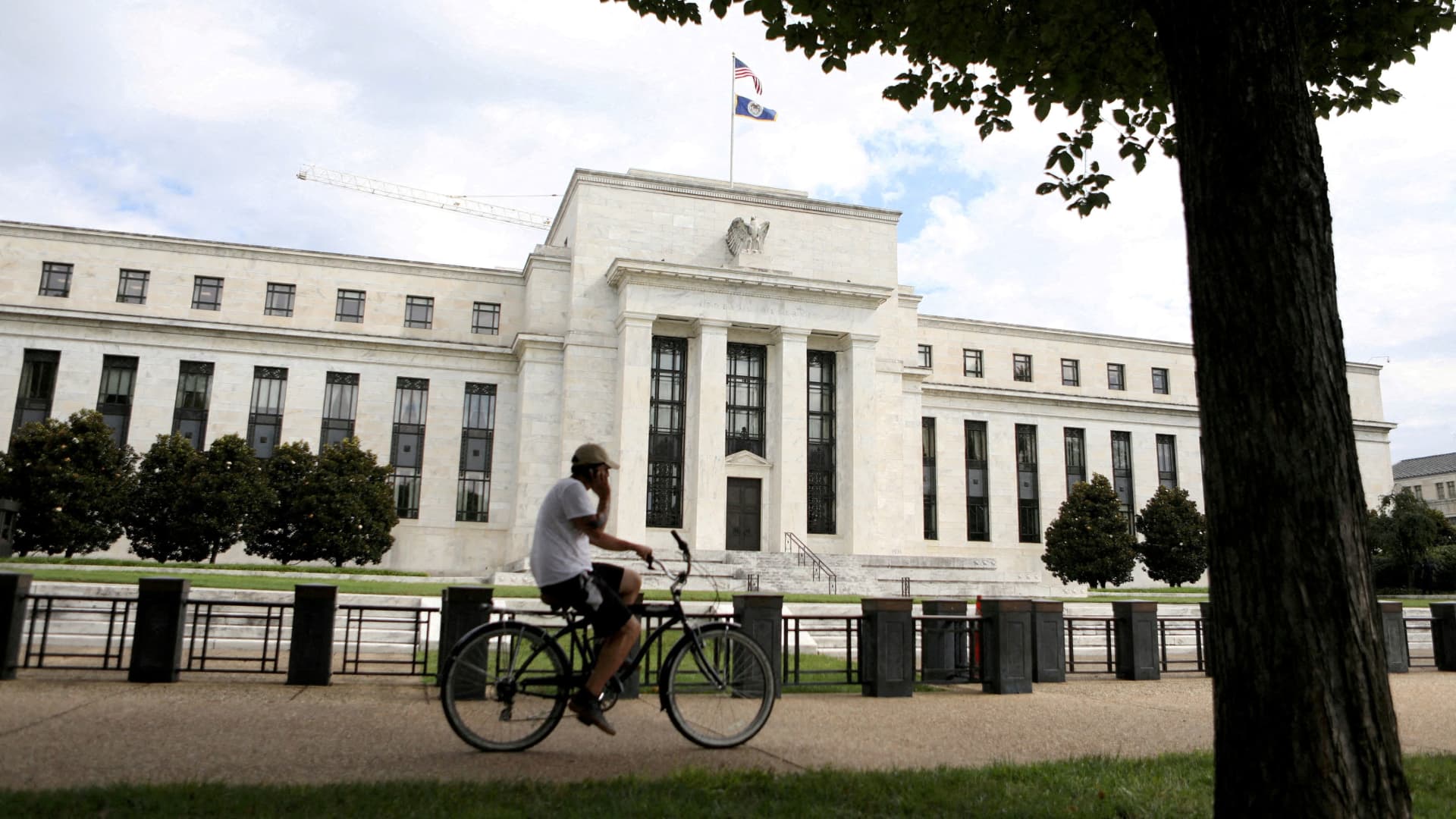The U.S. Federal Reserve’s easing cycle will be “mild” by historical standards when it starts cutting rates at its September policy meeting, ratings agency Fitch said in a note.
In its global economic outlook report for September, Fitch forecast 25-basis-point cut each at the central bank’s September and December meeting, before it slashes rates by 125 basis points in 2025 and 75 basis points in 2026.
This will add up to a total 250 basis points of cuts in 10 moves across 25 months, Fitch noted, adding that the median cut from peak rates to bottom in previous Fed easing cycles going up to the mid-1950s was 470 basis points, with a median duration of 8 months.
“One reason we expect Fed easing to proceed at a relatively gentle pace is that there is still work to do on inflation,” the report said.
This is because CPI inflation is still above the Fed’s stated inflation target of 2%.
Fitch also pointed out that the recent decline in the core inflation — which excludes prices of food and energy — rate mostly reflected the drop in automobile prices, which may not last.
U.S. inflation in August declined to its lowest level since February 2021, according to a Labor Department report Wednesday.
The consumer price index rose 2.5% year on year in August, coming in lower than the 2.6% expected by Dow Jones and hitting its lowest rate of increase in 3½ years. On a month-on-month basis, inflation rose 0.2% from July.
Core CPI, which excludes volatile food and energy prices, rose 0.3% for the month, slightly higher than the 0.2% estimate. The 12-month core inflation rate held at 3.2%, in line with the forecast.
Fitch also noted that “The inflation challenges faced by the Fed over the past three and a half years are also likely to engender caution among FOMC members. It took far longer than anticipated to tame inflation and gaps have been revealed in central banks’ understanding of what drives inflation.”
Dovish China, hawkish Japan
In Asia, Fitch expects that rate cuts will continue in China, pointing out that the People’s Bank of China’s rate cut in July took market participants by surprise. The PBOC cut the 1-year MLF rate to 2.3% from 2.5% in July.
“[Expected] Fed rate cuts and the recent weakening of the US dollar has opened up some room for the PBOC to cut rates further,” the report said, adding that that deflationary pressures were becoming entrenched in China.
Fitch pointed out that “Producer prices, export prices and house prices are all falling and bond yields have been declining. Core CPI inflation has fallen to just 0.3% and we have lowered our CPI forecasts.”
It now expects China’s inflation rate to bet at 0.5% in 2024, down from 0.8% in its June outlook report.
The ratings agency forecast an additional 10 basis points of cuts in 2024, and another 20 basis points of cuts in 2025 for China.
On the other hand, Fitch noted that “The [Bank of Japan] is bucking the global trend of policy easing and hiked rates more aggressively than we had anticipated in July. This reflects its growing conviction that reflation is now firmly entrenched.”
With core inflation above the BOJ’s target for 23 straight months and companies prepared to grant “ongoing” and “sizable” wages, Fitch said that the situation was quite different from the “lost decade” in the 1990s when wages failed to grow amid persistent deflation.
This plays into the BOJ’s goal of a “virtuous wage-price cycle” — which boosts the BOJ’s confidence that it can continue to raise rates towards neutral settings.
Fitch expects the BOJ’s benchmark policy rate to reach 0.5% by the end of 2024 and 0.75% in 2025, adding “we expect the policy rate to reach 1% by end-2026, above consensus. A more hawkish BOJ could continue to have global ramifications.”

 Blog Post1 week ago
Blog Post1 week ago
 Economics1 week ago
Economics1 week ago
 Finance1 week ago
Finance1 week ago
 Economics1 week ago
Economics1 week ago
 Economics1 week ago
Economics1 week ago
 Personal Finance1 week ago
Personal Finance1 week ago
 Accounting1 week ago
Accounting1 week ago
 Economics1 week ago
Economics1 week ago









